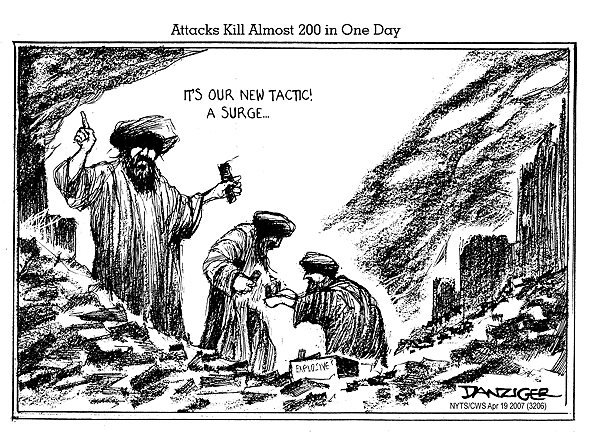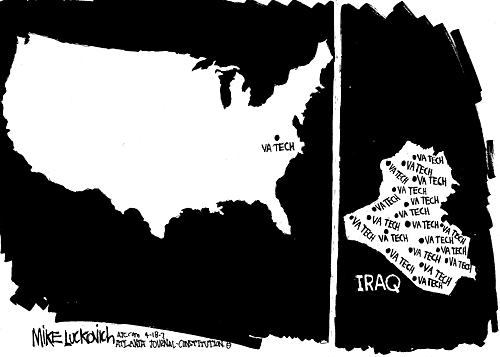BAGHDAD, April 19 — Bombs ravaged Baghdad in five horrific explosions aimed mainly at Shiite crowds on Wednesday, killing at least 171 people in the deadliest day in the capital since the American-led security plan for the city took effect two months ago.
Another suicide car bomber killed 10 more people in a religiously mixed neighborhood today. The wave of attacks, five of them involving car bombs, took place as Prime Minister Nuri Kamal al-Maliki declared that the Iraqi government planned to take full control of security from the American-led forces before the end of the year.
In the worst of the bombings Wednesday, a car packed with explosives exploded at an intersection in the Sadriya neighborhood that serves as a hub for buses traveling to the Shiite district of Sadr City. The blast killed at least 140 people and wounded 150; incinerated scores of vehicles, including several minibuses full of passengers; and charred nearby shops, witnesses and the police said.
Mr. Maliki said in a statement late Wednesday that he had ordered the arrest of an Iraqi Army officer who had security oversight in the Sadriya neighborhood. As rescuers thronged the site, a sniper opened fire on the crowd, killing at least one person and wounding two others.
"The blast threw me to the ground and shattered a window over my body," said Salar Kamal Zari, a 37-year-old teacher visiting from Kurdistan, who had just stepped into a nearby store when the bomb exploded. "I saw a human head in front of the store and many cars burning and smoke everywhere."
"I will never stay in Baghdad anymore," he vowed.
The Baghdad security plan calls for 28,000 additional American troops, as well as thousands of Iraqi soldiers, most of whom will be deployed in the streets of the violent capital in an attempt to pacify it. But Mr. Maliki said the gradual transfer to Iraqi authority would continue, with three provinces in the relatively tranquil region of Kurdistan the next to come under Iraqi security authority, followed by Karbala and Wasit Provinces in the south.
"In this way, province by province, we will reach the end of the line before the end of the year," the prime minister said in a speech delivered by Mowaffak al-Rubaie, his national security adviser. The speech observed the transfer of the southern province of Maysan from British to Iraqi control. Maysan is the fourth of Iraq's 18 provinces to be handed to Iraqi security forces.
American commanders have said that the Baghdad security effort has reduced the kinds of sectarian killings associated with Shiite death squads, in part because of the decision by many militia fighters to lay low. But the plan has failed to curb the spectacular attacks, many of them suicide bombings, that have become a gruesome hallmark of the Sunni Arab-led insurgent group Al Qaeda in Mesopotamia. As a result, commanders say, overall civilian casualty rates are actually higher now than they were before the plan was initiated.
"As we've said before, it's going to be a tough fight," said Lt. Col. Christopher Garver, an American military spokesman. But, he added, "The plan is not even fully implemented yet."
Two American brigades — a total of about 7,000 soldiers — are still scheduled to arrive in Iraq and join three other brigades that have poured into the capital and surrounding areas, he said. American commanders say their strategy to prevent these sorts of attacks focuses on rooting out insurgent redoubts in predominantly Sunni towns and villages on the capital's periphery, or what they call "the Baghdad belts."
"A high-priority mission is finding these car bomb factories and getting rid of them, and capturing and killing the terrorists who make the bombs," Colonel Garver said in a telephone interview on Wednesday. Because of the complexity of building a car bomb — the process can require a near-complete dismantling of the vehicle — most are probably made in sparsely populated areas where the work can be more easily concealed, the American commanders say.
The attacks risked reawakening the dormant Shiite militias, especially the Mahdi Army of Shiite cleric Moktada al-Sadr, and reigniting the cycles of sectarian violence that tormented Baghdad after the bombing of a revered Shiite shrine in Samarra in February 2006.
Defense Secretary Robert M. Gates said the Sunni insurgency's intent was to provoke more sectarian violence. "We can only hope that the Shia will have the confidence in their government and in the coalition that we'll go after the people that perpetrated this horror," he told reporters in Tel Aviv after meeting with Israel's defense minister, Amir Peretz.
Officials in Mr. Sadr's office in Sadr City would not comment Wednesday on whether the bombing campaign would provoke a resurgence of the Mahdi Army, though they declared that the continuing attacks underscored the failure of the security plan. "The security situation is worsening," said Abdul Mehdi Mutayri, one of the top political officers for Mr. Sadr's organization. "The security plan might have been declared a success in the media, but it has failed on the ground."
The Sadriya bombing recalled an attack near the same spot on Feb. 3, when a truck bombing killed at least 137 people, wounded 305 and obliterated a popular market. Mr. Maliki said in a statement that he had ordered the arrest of the commander of the Iraqi Army's Second Battalion, Second Brigade, "because of the repetition of tragedy in the Sadriya district, showing the weakness of the security planning to protect civilians."
Today, a bomber rammed his car into a fuel tanker in the religiously-mixed neighborhood of Jadriya, also wounding 21 people, Reuters reported, citing police. Black smoke billowed into the sky as flames engulfed the car and the tanker, television footage showed.
After the blast on Wednesday, scores of residents from the neighborhood gathered at the site to gawk at the wreckage, mourn the victims and shout imprecations. "Oh God, what did they do?" a man yelled. Women standing on a balcony overlooking the intersection beat their chests in a traditional sign of grief.
In the mayhem that ensued, even more people died. A sniper opened fire on the crowd, killing at least one person and wounding two others. The shots appeared to come from the adjoining neighborhood of Fadhel, which is predominantly Sunni Arab.
Rahim Rahim Karim Hmait, a 43-year-old taxi driver, said he tried to evacuate several wounded people to the hospital. But as he approached an army patrol at high speed, soldiers, perhaps thinking he was a suicide bomber, opened fire on his taxi. He was hit in the abdomen, leg and hand, he said. "I lost control and the car smashed into one of the shops," he said in an interview at a hospital in Sadr City, where he was taken for care. "Some of the wounded people died inside the car."
Earlier in the afternoon, a suicide car bomber detonated himself near an Iraqi police checkpoint at an entrance to Sadr City, home to more than 1.5 million people, mostly Shiites. The explosion ripped through a bottleneck of vehicles and pedestrians waiting to pass through the checkpoint, killing at least 17 people and wounding at least 45, an Interior Ministry official said.
In another attack, a parked car packed with explosives exploded on a busy shopping street in the predominantly Shiite neighborhood of Karada, killing at least 10 people and wounding at least 13, according to the Interior Ministry official. The blast also damaged a nearby private hospital and several other buildings.
In Saidiya, a mixed neighborhood in western Baghdad, a car bomb killed two people and wounded eight, including three police officers, the official said. A bomb on a minibus detonated as the bus passed through the Shiite district of Rusafa in central Baghdad, killing at least two people and wounding five, the police said.
In the district of Uaireej, south of Baghdad, a suicide car bomber detonated himself near a police patrol, killing two police officers and wounding four people, including two police officers and two civilians, the Interior Ministry official said.
In another attack, a vehicle belonging to a private security detail exploded in the parking lot outside the entrance to the highly secure complex that includes Baghdad International Airport and the main military base of the American command, coalition security officials said. There were no reports of casualties. According to the security officials, the vehicle pulled into the lot, its occupants got out, and the car blew up. The blast tossed the vehicle onto the roof of a neighboring car, according to the officials, igniting both vehicles and snarling traffic around the airport for the entire day.
In Diyala Province, a government security official said Wednesday that 19 insurgents and 2 policemen were killed in heavy clashes on Sunday between Al Qaeda in Mesopotamia and the Iraqi security forces in the villages of Al Mohola and Albosbaa, about 12 miles northeast of Baquba.
Fighting between government security forces and insurgents in Muqtadiya, north of Baquba, ended in the death of three insurgents and the arrest of four others, the security official said. Another Iraqi soldier was killed by gunmen in Khalis, northeast of Baghdad.
In Mosul, fighting between insurgents and the Iraqi Army and police killed six police officers, one soldier and a civilian, according to Brig. Saeed Abdullah al-Jubouri, a spokesman for the provincial police in Nineveh Province.
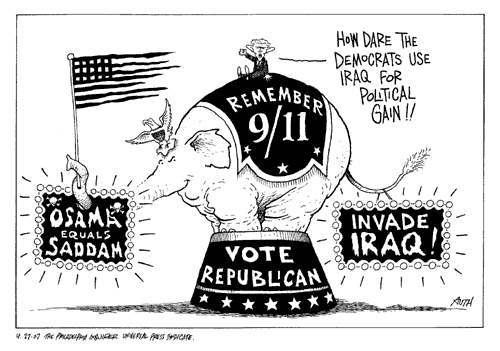



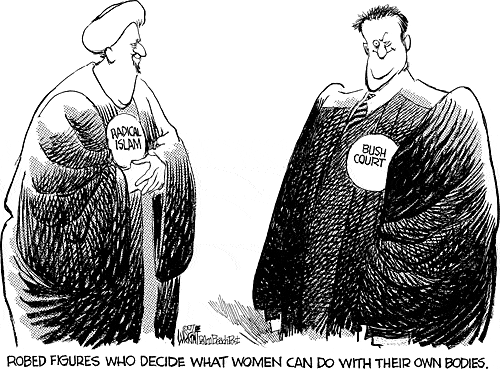



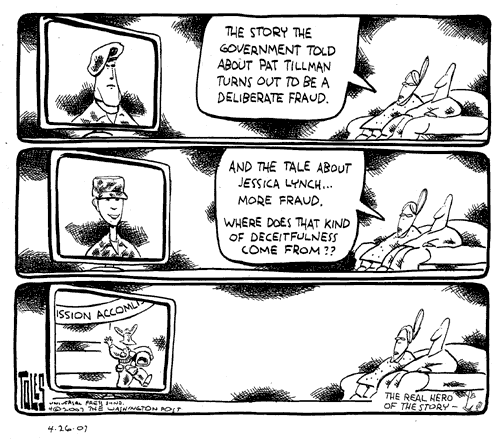


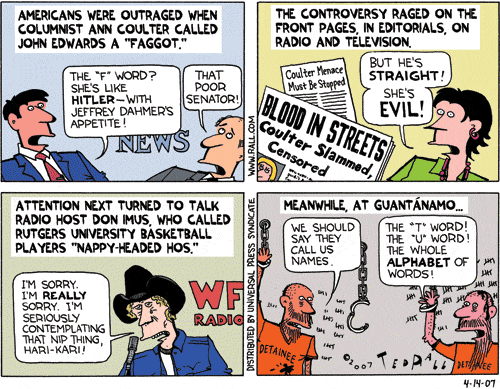
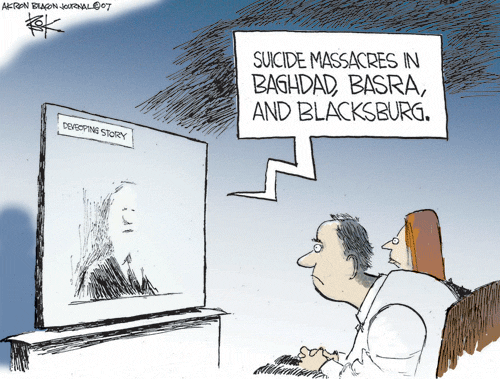
![[Nouri al-Maliki]](http://online.wsj.com/public/resources/images/HC-GI169_alMali_20060613150841.gif)

